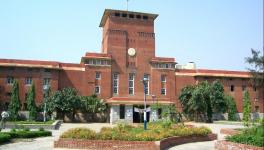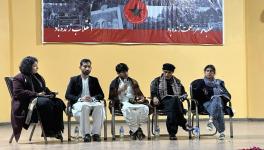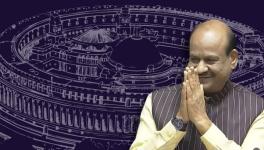Nothing 'New' in New Education Policy, Peddles Corporatisation and Centralisation in Education
Image for representational use only.Image Courtesy : NDTV
Ministry of Human Resources Development on Friday evening (May 31) released the draft of New Education Policy, 2019. The policy, which was promised by Bharatiya Janata Party (BJP) in its manifesto in the run up to the 2014 Lok Sabha elections, underwent a long journey before it was formally submitted last December.
Drafted by a committee headed by former Indian Space Research Organisation chief K Kasturirangan, the policy appears to be in line with previous reports drafted by the Niti Aayog and the ministry. The 400 page document of the policy marks a departure from the conventional 10+2 school education system to a new 5+3+3+4 structure, implying five years of foundational stage including 3 years of pre-nursery and classes 1 and 2. It will be followed by three years of preparatory stage, three years of middle school and four years of secondary stage.
The students will be evaluated in grade 3, 5 and 8 on basic core concepts and other skills in consensus examinations. It further recommends that the students will be taught in 8 semesters in four years. The students, the policy suggests, will be able to choose a suitable time to appear in the examinations.
Similarly, language too has taken a centre stage in the process of learning. The policy recommends that the mother tongue will remain the mode of instruction till class V and they can preferably choose it till class 8. The provision has been coupled with Sanskrit which will be offered at all levels.
Meanwhile, opposition parties in Tamil Nadu on Saturday opposed the three-language formula for schools in the state, as stated in the draft national education policy presented by K. Kasturirangan Committee to the central government. As reported by IANS, DMK Lok Sabha member Kanimozhi said her party would oppose any such move. Reacting to the formula, actor-turned-politician Kamal Haasan said, "No language should be imposed and those who are interested can learn any language of their choice".
The Kasturirangan Committee has recommended teaching of Hindi, English and one regional language in the non-Hindi states. For Hindi-speaking states, the committee has recommended teaching of Hindi, English and one of the modern Indian languages from other parts of the country.
However, it has not specified what would be the modern Indian language. Tamil has been accorded the classical language status by the central government.
The proposals that have sent jitters to educationists and academicians have come in the form of Rashtriya Shiksha Aayog’s (National Education Commission) invitation to top 200 global universities for establishing 500 high quality educational institutions by 2030. NewsClick spoke to eminent educationists for their opinion on the move made days after the formation of the new government.
Anil Sadgopal, eminent educationist who was actively involved in advocating the Right to Education Act said the policy has nothing new to offer and is in line with previous reports submitted by Niti Aayog. He said, “The basic idea that has been peddled through all these reports is to eliminate chances of knowledge production and create low wage opportunities. For example, there are around 700 universities in the country. Instead of strengthening them, the policy proposes that top 200 global universities will be invited to establish their campus in the country. Are these universities known for their knowledge production or research. Certainly no! They want to invite universities which have been ranked by business institutions. Will they create individuals who will serve the society as envisioned by Dr. Ambedkar and Phule?”
Commenting on the proposal of the creation of National Education Commission, he said that the message is quite clear. He said, “What sort of policies do you think the body will form? The experience of previous commissions suggest that the academicians who could debate freely on various ideas, autonomy formed a key for such commissions. What autonomy do you expect in the chairmanship of prime minister?”
Similar sentiments were echoed by another educationist Anita Rampal. She said, “The level of centralisation is unprecedented in this government. We were concerned about the University Grants Commission but the proposals take centralisation to an entirely another level. Radhkrishnan Commission or Kothari Commission's experience showed that autonomy was a prime mover in formulating the policies. We saw a vision in their functioning. With the prime minister heading an education commission, it is certain that it will be Sarkari (government) commission."
On being asked about the needs of 8.4 crore children who are out of formal school education system, Rampal said, "I am afraid the situation will be worse. On the one hand, they are saying they have broadened the scope of Right to Education, while we are seeing a consistent follow up of the recommendations of Niti Aayog."
Apporvanand, professor at the Hindi Department, University of Delhi has his own arguments. He said, “Inviting top global universities is an years-old idea which has been doing rounds in bureaucratic circles. We need to understand that an university cannot be made overnight, it evolves with time and I guess this is something the government has missed.”
(With inputs from IANS)
Get the latest reports & analysis with people's perspective on Protests, movements & deep analytical videos, discussions of the current affairs in your Telegram app. Subscribe to NewsClick's Telegram channel & get Real-Time updates on stories, as they get published on our website.






















